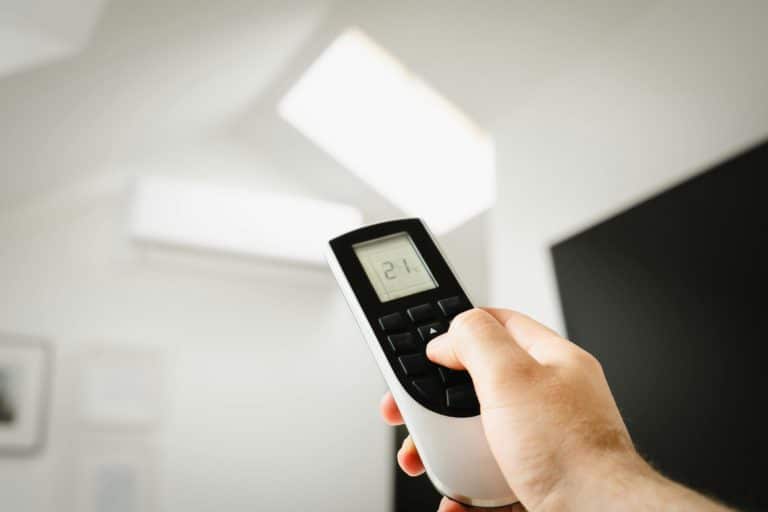It can be challenging to maintain the ideal temperature in your house, especially when various people have different preferred room temperatures. Too hot, too cold. Your house’ temperature can have an impact on your health, comfort, energy expenses, and the environment. Fortunately, there are simple solutions to save energy, cut costs, and lessen the environmental impact without affecting comfort.
Continue reading to find out what is the ideal room temperature, how to keep it, and how to heat your house while using the least amount of energy possible.
What Is The Ideal Room tEMPERATURE?

The warmth or coldness of a room’s air is what determines its temperature, which is also influenced by humidity. When determining the ideal temperature, it is important to consider the specific location in which you are in. For example, the bedroom temperature, living room temperature, or bathroom temperature will all have different temperatures. Finding the ideal temperature for each member of your household’s room can be a real challenge. Indeed, your perception of a room’s temperature can be affected by what you are wearing and the activity you’re engaged in.
A thick, woolen jumper will keep you warmer than shorts and a T-shirt. It might also be necessary to adjust the thermostat settings to accommodate various functions; for example, you might need to set it to a lower temperature for cooking and a higher temperature for relaxing in front of the TV in the evening.
Moreover, there isn’t a one-size-fits-all solution for heating different rooms. Because your oven or hob will produce more heat while you cook, you may want to set the temperature in your kitchen to a lower range, perhaps between 18 and 20 degrees Celsius. In contrast, if you want to create a cozy atmosphere for lounging on the sofa, you might feel more at ease with your living room temperature set between 20 and 22 degrees Celsius.
Just keep in mind that the lowest temperature you should set your thermostat to is 18 to 20 degrees Celsius if anyone in the house is over 65. You must also make sure you do this when somebody is sick or has pre-existing medical concerns. The NHS also advises parents to keep their baby’s room at roughly 18 degrees Celsius when they sleep.
What Is The Ideal Season Temperature?
A lot of people also find it difficult to adjust their room’s temperature according to the seasons. Fortunately, most of us should be comfortable at this temperature year-round. Try to maintain a temperature of between 18 and 20°C in your rooms, whether it is summer or winter.
For example, during the summer, when temperatures are above 20°C, you might need to take action to cool your rooms. You can do this by keeping your heating off during the day as well as opening your doors and windows.
Setting your heater to a reasonable range of between 18 and 20°C should help keep you warm during the cold winter months. Let’s say, though, that the outdoor temperature is below zero. If so, to ensure that your house is warm enough for the whole family, you should run your heating system continuously throughout the day.
What Is The Ideal Health Temperature?
We have to acknowledge that room temperature poses health risks. Too much heat or cold in your house can lead to several health issues. This is especially crucial if you have young children or reside with senior family members.
As per the World Health Organization, a room should have a minimum temperature of 18°C to guarantee good health.
How Room Temperature Affects Sleep and Productivity

Ideal Temperature for Sleep
- The recommended bedroom temperature for optimal sleep is 16-18°C (60-65°F). Temperatures higher than this can lead to restlessness and sweating, while lower temperatures may cause discomfort and disrupted sleep cycles.
- A cooler environment helps the body regulate melatonin production, which promotes deep sleep.
- To improve sleep, consider using breathable bedding materials and keeping the room dark and well-ventilated.
Ideal Temperature for Productivity
- The best home office temperature is around 22-25°C (72-77°F). Cooler environments help improve alertness, while warmer temperatures can make people feel sluggish.
- If your workspace feels too warm, a desk fan or smart thermostat can help maintain an ideal setting.
- Natural light and proper air circulation also contribute to a comfortable and productive work environment.
Alternative Heating Methods
Installing a modern, low-carbon heating system—like a heat pump—is one of the best methods to save energy in your house. These innovative methods heat houses using energy from underground, sea, and air sources.
One advantage of heat pumps is their up to 300 percent efficiency. Accordingly, it can produce up to three times as much heat for every unit of energy used to power it. This is far more than the typical gas boiler, which, even at current A-rated standards, can only provide about 92%.
By replacing your gas boiler, you can significantly lower your carbon footprint because heat pumps also emit very little carbon dioxide. You may significantly lessen your negative environmental impact and save cost on your energy bills by making the switch to a low-carbon system.
Depending on the type of heating system you replace, you may be able to save money annually if your house has a heat pump. If you combine a heat pump with a renewable energy source, like solar panels, you can save even more money.
Tips For Heating Your House Sustainably While Lowering Your Energy Costs
Now that you know and understand what is the ideal room temperature in every way, it’s time to learn and comprehend the few things you can do to live inexpensively and sustainably in your house without compromising your comfort or health.
Closed Doors And Windows
This is a simple method to cut down on energy waste and save money; just concentrate on heating the rooms that you use, rather than attempting to heat your entire house or, worse, outdoors.
Draught-Proofing
Cover any chilly spots beneath doors or around windows with inexpensive draught excluders for a simple and quick solution to reduce the amount of heat you consume in your house and, consequently, lower your energy bill.
Insulate Your House
Insulation between the cavity walls helps keep your house cool in the summer and minimizes heat loss, which keeps it warm in the winter. You may be able to reduce your annual energy bill, which leads to lower expenses and less energy used to maintain the ideal temperature.
Updated Boiler
Investing in a new, energy-efficient boiler will help you prevent energy waste and ultimately save money when your boiler is older than ten years. To make sure it’s functioning safely and effectively, have your boiler inspected annually.
Utilize Smart Meter
With a smart meter, you can quickly and easily view your energy consumption in almost real-time, as well as the cost in dollars and your CO2 emissions. This information will help you make more informed decisions about how much energy you consume and identify small changes that can save energy, lower your bills, and lessen your environmental impact.
Conclusion
Maintaining the ideal room temperature is essential for comfort, health, and energy efficiency. Whether you’re heating your home in winter or cooling it in summer, small adjustments and modern energy-efficient solutions can make a significant difference. However, if you’re unsure about optimizing your home’s temperature or upgrading to a more efficient system, consulting an HVAC professional can help you find the best solutions for your specific needs.



